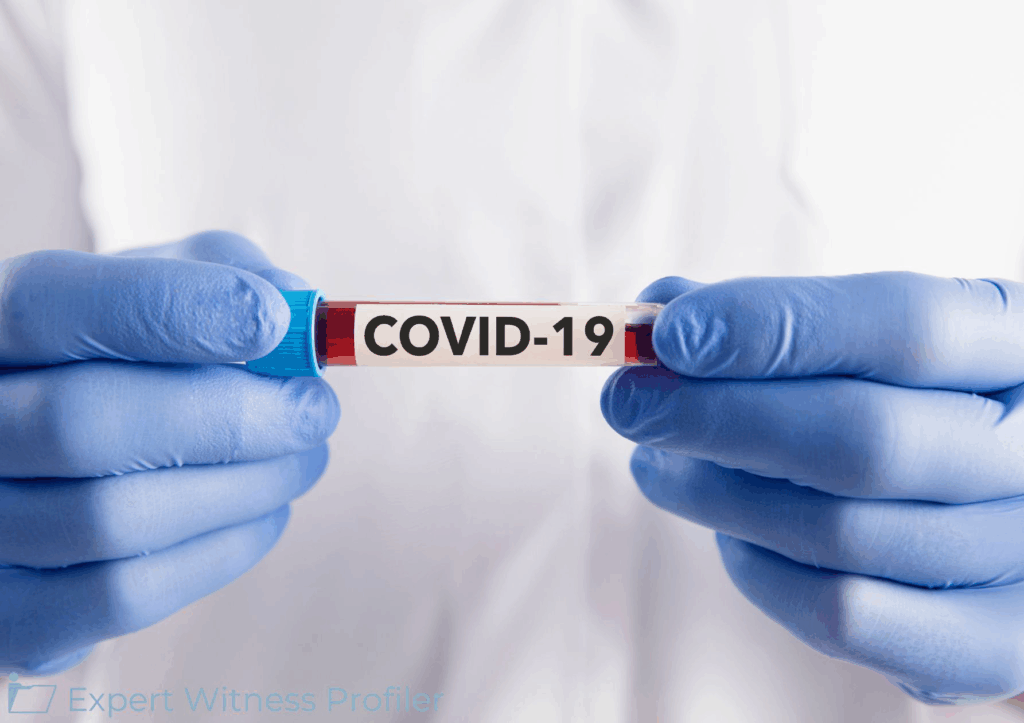Epidemiology Expert’s Testimony With Regard to the Anti-Vaccine Movement Excluded
Posted on May 20, 2025 by Expert Witness Profiler
Board of Education of the City of St. Louis, through Superintendent Kelvin Adams and Chief Human Resources Officer Charles Burton, imposed a vaccination mandate on its employees. Despite inviting requests for religious exemptions (and received nearly 200 of them), it denied every single one of them. As a result, many of the employees brought this suit against the Board, Adams, and Burton.
Defendants retained Dr. Daniel Salmon to provide opinions in six general areas: (1) the threat of COVID-19 in October 2021, (2) the “[s]afety and [e]fficacy of COVID-19 vaccines,” (3) institutions’ COVID-19 vaccine mandates, (4) the “[i]mpact of medical and religious exemption requests,” (5) “the anti-vaccine movement’s impact on mandatory vaccine policies,” and (6) the connection between COVID-19 vaccines and stem cells. Plaintiffs filed a motion to exclude the proposed testimony of Salmon.

Epidemiology Expert Witness
Daniel Salmon works as a professor of global disease epidemiology and control in the Department of International Health at the Johns Hopkins University Bloomberg School of Public Health.
Discussion by the Court
1. Methodology
The Plaintiffs argued Salmon lacked knowledge about the specific parties in the case, noting he reviewed only three exhibits and didn’t know the number of exemption requests.
The Court held that these objections did not warrant dismissing Salmon’s opinions wholesale.
2. Relevance
Plaintiffs argued that Salmon’s opinions lacked relevancy because they did not relate to Defendants’ stated reasons for denying Plaintiffs’ religious exemption requests. After all, the only reason that Defendants gave for denying Plaintiffs’ exemption requests was the need to “balance the constitutional obligation to provide a free public education” to Missouri youth against the right to the free exercise of religion.
Plaintiffs thus argued that any other attempted justification for the denials bears no relevance to the case because “[g]overnment ‘justification[s]’ for interfering with First Amendment rights ‘must be genuine, not hypothesized or invented post hoc in response to litigation.'”
The letters denying the religious-exemption requests did not explicitly mention the Board’s interest in protecting students and staff from COVID-19. But the challenged vaccination policy itself did. Basically, the Board of Education adopted this policy to safeguard the health and well-being of employees and their families.
Therefore, the post-hoc-in-response-to-litigation doctrine did not render Salmon’s opinions irrelevant.
3. Assistance to the Trier of Fact
Plaintiffs argued that Salmon’s opinions “expressed factual determinations that a jury is readily capable of making without expert assistance” and that his opinions “are premised on publicly available information regarding the COVID-19 pandemic.”
However, the Court rejected Plaintiffs’ argument on this ground as undeveloped.
4. Relevance and Unfair Prejudice
Plaintiffs argued that Salmon’s testimony would be “unfairly prejudicial” because it would associate Plaintiffs “with anti-vaccine movements and statements about stem cells.” Salmon admitted that he “[doesn’t] know anything about the Plaintiffs in this case.”
The Court agreed with Plaintiffs that Salmon’s opinions about the anti-vaccine movement’s impact on mandatory vaccine policies would not help the jury. After all, Salmon can offer nothing of value on the question of whether Plaintiffs’ objections were “religious in nature.”
So although Salmon might have knowledge about anti-vaccine movements, he does not (and cannot) connect any Plaintiff to any anti-vaccine movement.
Plaintiffs alleged in their complaint that their “religious beliefs prevented them from receiving the vaccination due to their use of fetal stem cells taken from aborted fetuses.”
As for Salmon’s opinions about stem cells and stem cells’ connection to COVID-19 vaccines, Salmon did not (and could not) opine on the extent to which the stem-cell issue influenced Plaintiffs’ objections to COVID-19 vaccination since he didn’t know anything about Plaintiffs.
5. Legal Conclusions
Salmon’s report answers this question: “Did institutions have a responsibility to evaluate non-medical exemption requests rather than simply rubber-stamping requests?” Salmon did not explain what he meant by “responsibility.”
To the extent that Salmon attempted to characterize “responsibility” as legal obligation, the Court excluded Salmon’s testimony as an improper legal opinion.
And to the extent that Salmon attempted to characterize “responsibility” in a different way (e.g., as moral or ethical responsibility), Defendants have failed to establish that Salmon has expertise to render opinions in that domain, and they have also failed to identify any reason why any opinions about moral or ethical responsibilities—as opposed to legal obligations—would have any relevance to the issues in this case.
Therefore, the Court excluded Salmon’s testimony to the extent that Salmon sought to testify to institutional responsibility of evaluating non-medical exemption requests.
6. Expertise
Plaintiffs argued, once again, that Salmon “did not apply any specialized expertise to the evidence.” The Court disagreed. Salmon’s expert report showed that he largely reached his conclusions based on his assessment, interpretation, and synthesis of numerous scientific studies related to vaccinology and epidemiology.
And Plaintiffs have failed to point to any specific opinions that they believe Salmon reached without his expertise. The Court rejects Plaintiffs’ generic, undeveloped argument on this ground.
Held
The Court granted in part and denied in part the Plaintiffs’ motion to exclude the testimony of Daniel Salmon.
Key Takeaway:
Salmon does not (and cannot) opine on the extent to which the stem-cell issue influenced Plaintiffs’ objections to COVID-19 vaccination because objective facts about the vaccines’ connections to stem cells have no bearing on whether Plaintiffs objected to vaccination based on their religious beliefs, which “need not be acceptable, logical, consistent, or comprehensible to others” to merit protection under the law.
Case Details:
| Case Caption: | Brandon V. Board of Education of City of ST. Louis |
| Docket Number: | 4:22 cv 00635 |
| Court Name: | United States District Court for the Eastern District of Missouri, Eastern Division |
| Order Date: | May 8, 2025 |





